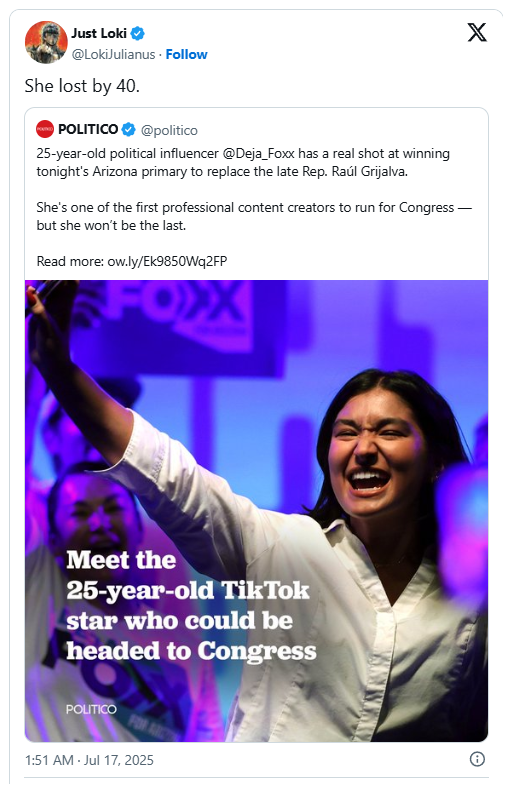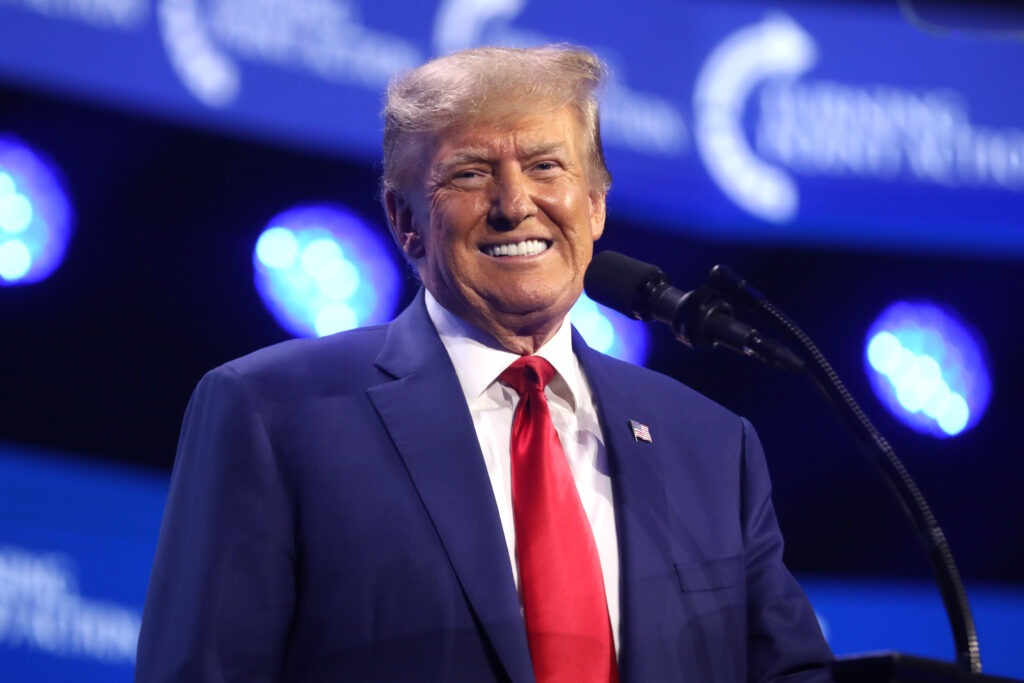As Democrats appear to be embracing a new generation of far-left candidates, the party got a massive wake-up call in an Arizona primary this week.
Twenty-five-year-old social media influencer and self-styled progressive Deja Foxx was soundly defeated Tuesday night in Arizona’s 7th Congressional District special election, losing by over 40 points in what some liberal activists hoped would be a generational shift.
With 65% of precincts reporting, The Associated Press declared 54-year-old Adelita Grijalva the winner. Grijalva—daughter of the late Democratic Rep. Raúl Grijalva and a veteran Pima County supervisor—garnered roughly 62% of the vote, while Foxx, backed by youth activist David Hogg and the PAC “Leaders We Deserve,” managed just 21%.
The decisive loss dealt a harsh setback to progressives aiming to unseat an established name with a tech-savvy newcomer. Foxx, who only became eligible to serve in April, entered the race on the strength of national media buzz, celebrity endorsements, and nearly 400,000 TikTok followers.
Her campaign spotlighted her “lived experience”—from growing up in Section 8 housing and relying on food stamps to her early advocacy for reproductive rights—but those themes failed to move voters in the solidly blue district.
From the outset, Grijalva—widely viewed as her father’s political heir—ran a disciplined, well-funded campaign, securing endorsements from party luminaries like Sen. Bernie Sanders (I–VT), Rep. Alexandria Ocasio-Cortez (D–NY), and Arizona Senators Mark Kelly and Ruben Gallego (both D–AZ).
The magnitude of Foxx’s defeat was impossible to ignore. “She lost by 40,” wrote one X user, quoting an earlier Politico post that had speculated Foxx might “have a real shot” at the seat.
Foxx conceded her primary loss but praised the movement her campaign sparked, saying, “I couldn’t be prouder of what we built together.” She reflected on starting “alone in her bedroom” and building a grassroots effort that she said “shattered expectations.” Foxx vowed the fight isn’t over, declaring, “We’re not going anywhere,” but offered her full support to Grijalva.
Foxx’s campaign relied heavily on social media and youth engagement, raising over $670,000—mostly from small-dollar donors—and trying to reinvent field operations with a digital-first approach. Yet in a district where door-to-door organizing and established name recognition still carry weight, those strategies fell short.



